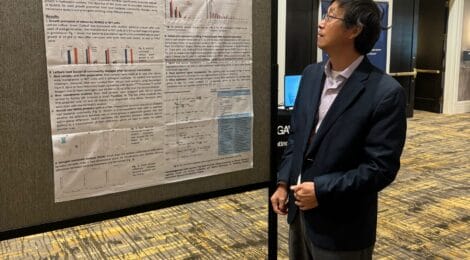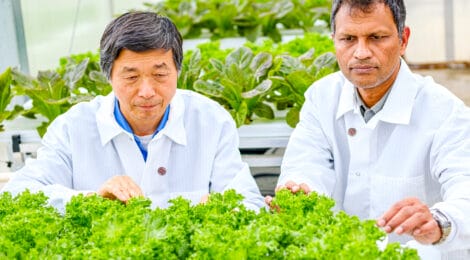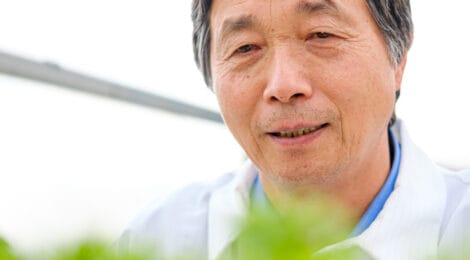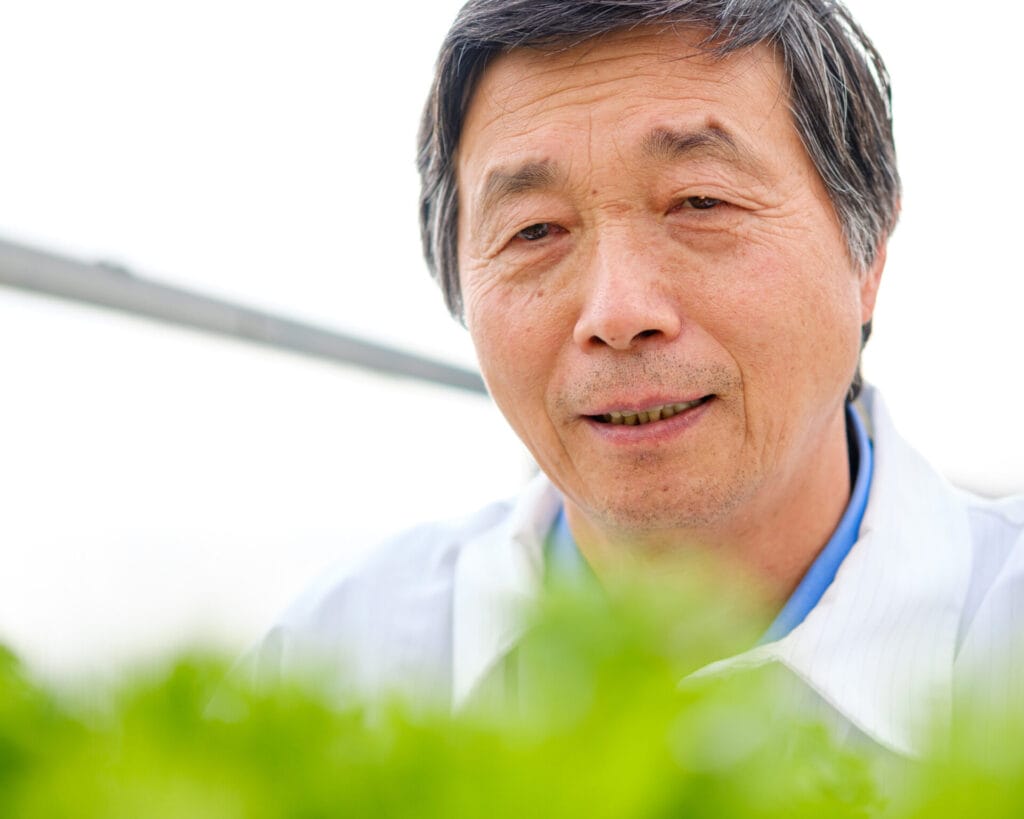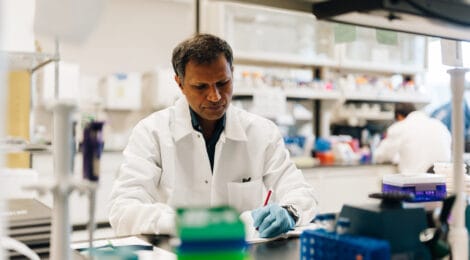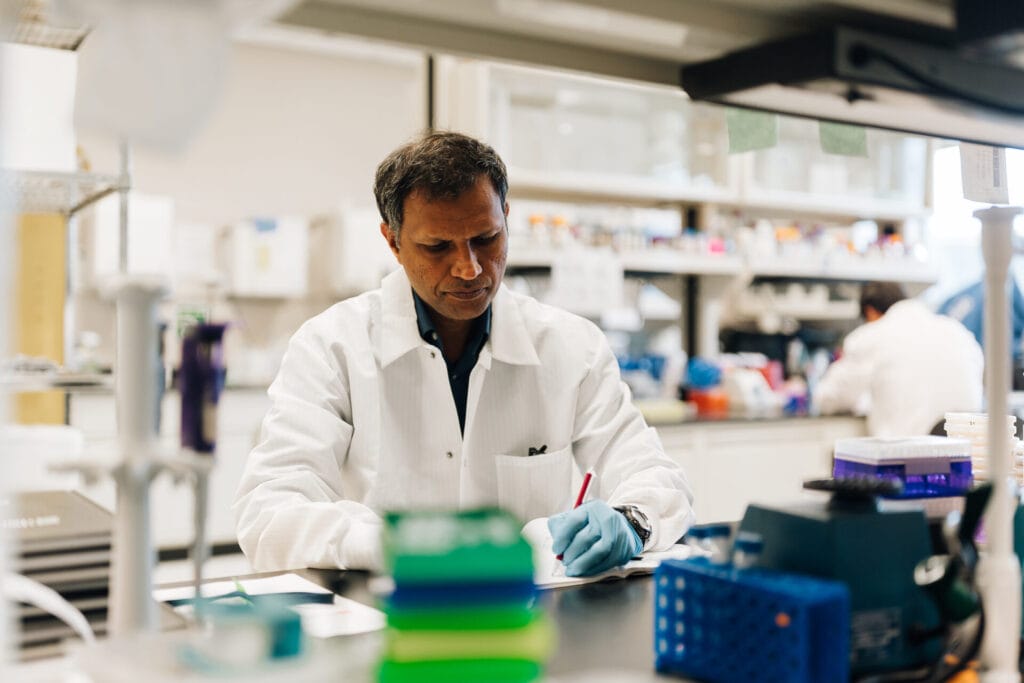Two scientists from the Institute for Advanced Learning and Research (IALR) presented research at the 11th Plant Genomics & Gene Editing Congress and the 8th Partnerships in Biocontrol, Biostimulants & Microbiome Congress held in Raleigh, N.C. Dr. Chuansheng Mei and Dr. Sajeewa Amaradasa showcased posters highlighting the results of their research into the effects of biostimulants and biocontrol agents on hydroponic lettuce and cucumber production, respectively.
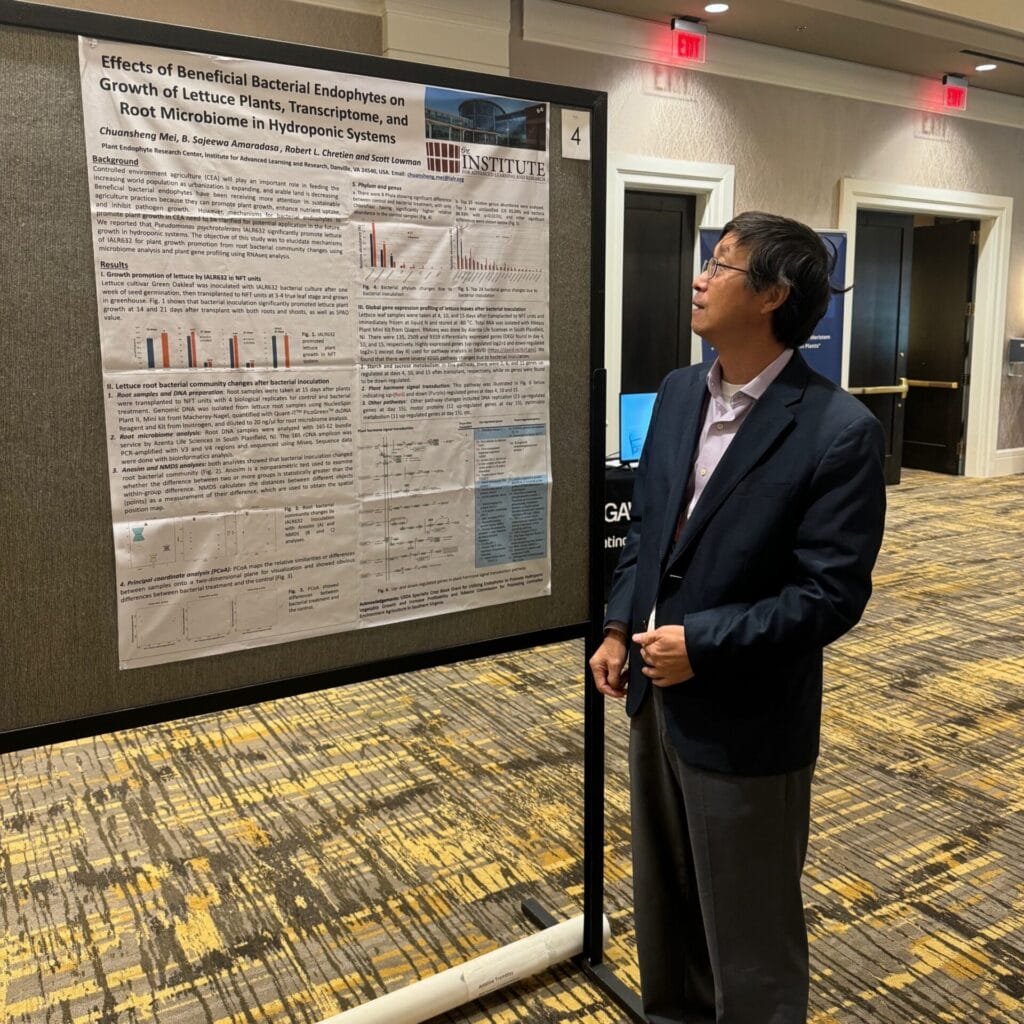 |
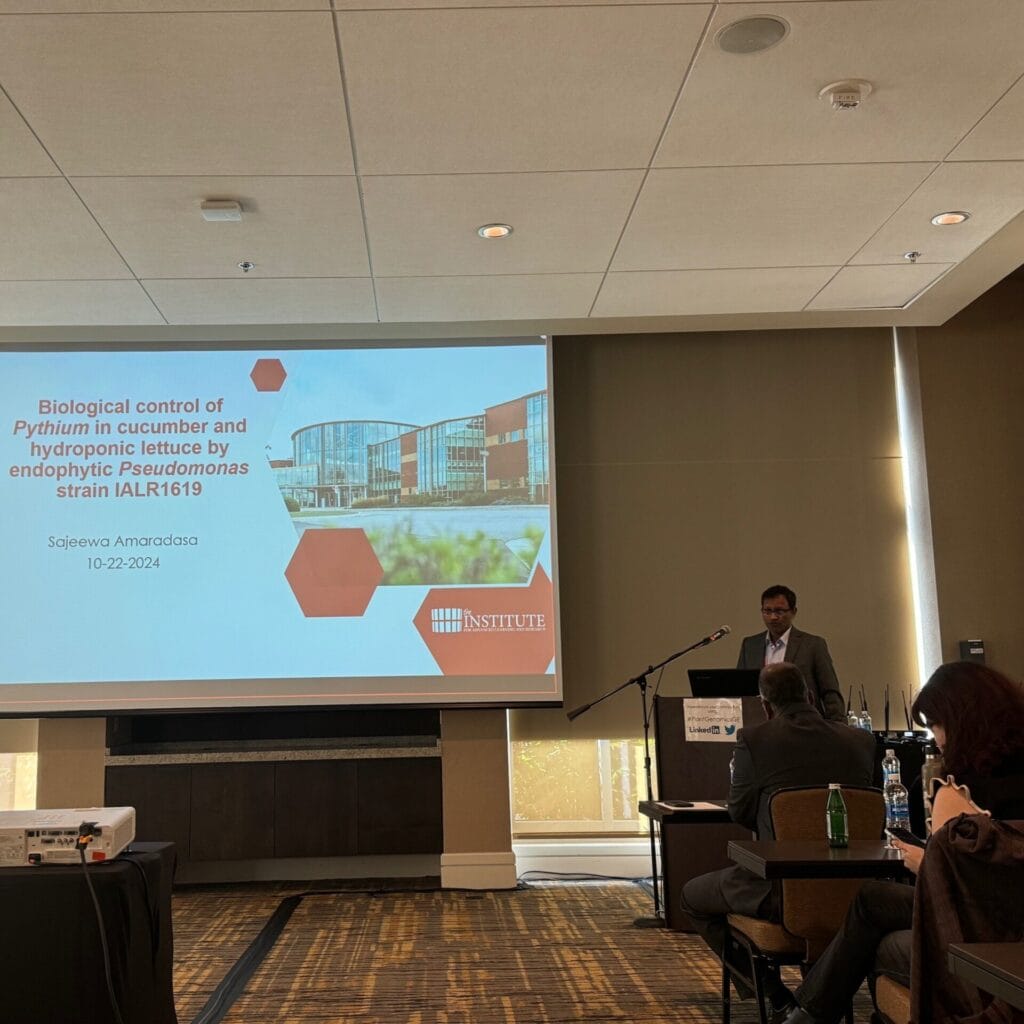 |
Dr. Amaradasa’s poster was selected as a winner in the poster competition, and he was then invited to present it during the congress.
Dr. Amaradasa showcased his work on “Biological Control of Pythium in Cucumber and Hydroponic Lettuce by Endophytic Pseudomonas Strain IALR1619.” Pythium is a persistent pathogen affecting cucumber and lettuce in indoor agriculture. Dr. Amaradasa’s study, published in PLOS ONE, found that treating these crops with a naturally occurring biocontrol agent improved plant survival rates and increased overall yield.
“Biocontrol agents offer a powerful alternative to chemical fungicides,” said Dr. Amaradasa. “Our work demonstrates that we can maintain effective disease control while minimizing ecological impact, which is essential for sustainable agriculture.”
Dr. Mei presented his research titled “Effects of Beneficial Bacterial Endophytes on Growth of Lettuce Plants, Transcriptome and Root Microbiome in Hydroponic Systems.” His findings, developed through a three-year collaboration with Virginia Tech and Appalachian State University, demonstrate how introducing a naturally occurring biostimulant can boost lettuce yield by 15-20% and significantly enhance root development.
“Our research is focused on providing growers with natural, effective tools to boost plant productivity,” said Dr. Mei. “The results show real promise for expanding sustainable food production in hydroponic systems, which is crucial as we look for ways to feed a growing population.”
The Plant Genomics & Gene Editing Congress focused on advancements in plant genomics and gene editing, with case studies on enhancing disease resistance and stress tolerance in critical crops. The congress also covered computational phenotyping, bioinformatics integration and the potential of artificial intelligence in plant research.
The 8th Partnerships in Biocontrol, Biostimulants & Microbiome Congress examined the development of agricultural biopesticides and biostimulants, focusing on plant microbiomes and their role in improving crop yield and stress tolerance. The event featured discussions on symbiotic plant-microbe relationships and regulatory updates for biological products.
The event provided a platform for IALR’s Applied Research team to share their cutting-edge work at the intersection of technology and agriculture, demonstrating how endophytes and other beneficial microorganisms can enhance productivity and sustainability.
“Our mission at IALR is to drive economic transformation, and our research team does that by meeting the needs of industry and producers,” said Dr. Scott Lowman, Vice President of Applied Research. “We are committed to providing unique services and sustainable solutions in biotechnology, controlled environment agriculture and analytical chemistry.”

